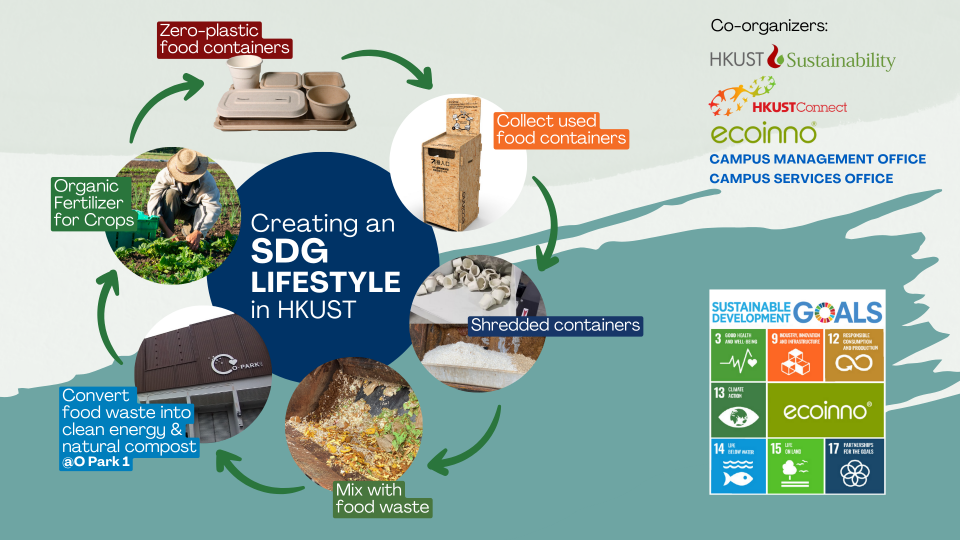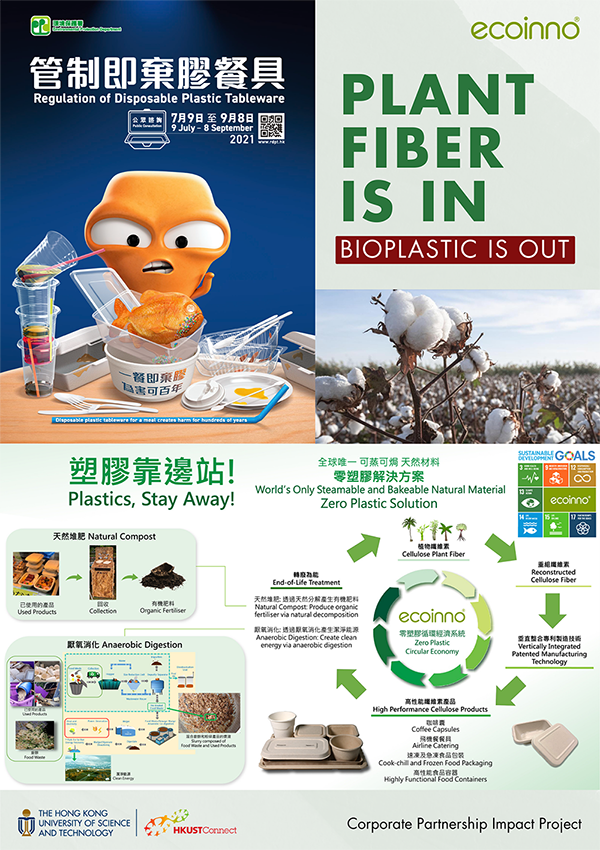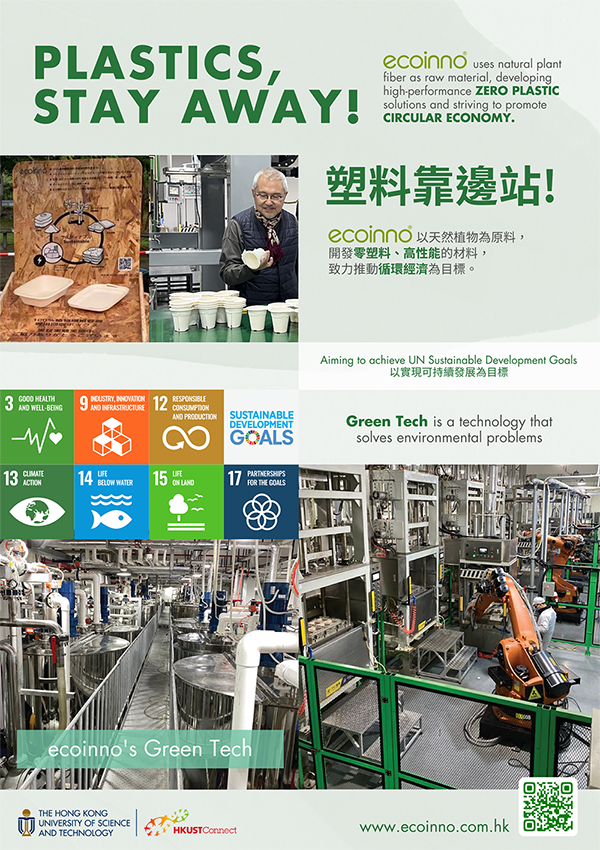Zero Plastic Takeaway Container Pilot Program

What is this program about?
Over 15,000 takeaway containers are consumed every week on campus. These containers are made with plastic lining or biodegradable plastic, which are difficult to decompose. To practise 'plastic-free' at the source, plant fiber-made takeaway food containers developed by ecoinno® are introduced in participating restaurants on campus in the Pilot Program.
Users will bring the emptied zero-plastic takeaway container to the designated collection bins for recycling. The containers are made of 100% biodegradable materials with no plastic and will decompose completely in 75 days. Following the success of Phase I of the Pilot Program where over 20,000 plastic disposables were saved, we are collaborating with five new catering outlets on campus in Fall 2023 to further reduce our waste sending to the landfill.
Phase II: 9 Oct - 30 Nov 2023
- Asia Pacific Catering (LG7)
- Can.teen II (LG1)
- China Garden (G/F)
- Diners@LSKBB (LSK)
- Gold Rice Bowl (LG7)
Phase I: 24 Apr - 28 Jun 2023
- American Diner
ecoinno® is a green-tech company focusing on the zero-plastic solution. With years of research and development, they have successfully developed and commercialized patented GCM® material and its manufacturing facilities as a breakthrough solution to replace plastic. Their highly functional disruptive pure plant fibre material replaces single-use plastic, aluminum and plastic coffee capsule, plastic laminated food containers and cups. Their products are free from plastic coating and toxic fluorinated (PFAS) oil-repellent additive.
What benefits does this program bring to the campus?
With the Government waste charging scheme implementing in April 2024 and the upcoming legislation that prohibits the local sale and provision of any disposable plastic tableware for both dine-in and takeaway customers, the Zero Plastic Takeaway Container Pilot Program will give the opportunity for catering outlets and HKUST members to experience the use of pure plant fibre made disposables to reduce the plastic waste, and prepare for the implementation of the regulation. It also contributes to our waste reduction target of HKUST 2028 Challenge that aims to reduce waste to the landfill by 75% compared to the 2014 baseline year.
HKUST is also the first location in Hong Kong that showcases the full life-cycle of takeaway container recycling.


